The Next Generation
Opening Doors
Jo Ann Eder took an unconventional path to her degree in astronomy. As someone who recognizes that there is more than one route to academic success, she is dedicated to ensuring opportunities in science for historically underrepresented groups. To advance this priority, she established a fund to support Carnegie postdocs from underrepresented communities.
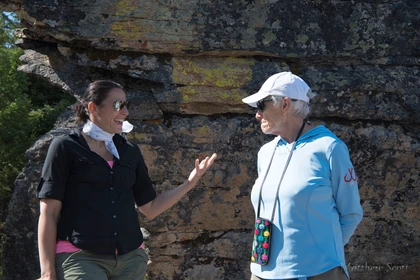
After raising 10 children with her husband, Bert, all homeschooled with a strong emphasis on science and the natural world, Eder determined that she wanted to pursue an advanced degree of her own.
“I thought to myself: I don’t want to wake up one day when I am older and wonder why I never tried to pursue astronomy,” Eder explained.
But having been out of the professional and educational fields for a number of years, she faced many rejections due to the “gap” on her resume. It wasn’t until she applied to Yale’s astronomy program that she was accepted and able to begin her studies again. At Yale, there had been several women with similar backgrounds to Eder’s who had come before her and understood her situation. Eder feels grateful for these mentors and colleagues, who both helped pave the way for her and enabled her to bring her dream to fruition. Now, through her giving to Carnegie Science she wants to create opportunities for others.
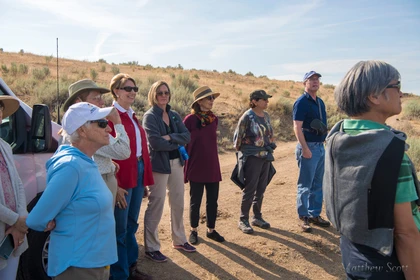
After completing her Ph.D., Eder was a postdoc at what is now Carnegie’s Earth and Planets Laboratory from 1990 to 1992 and went on to conduct research at the National Astronomy and Ionosphere Center in Puerto Rico, where she studied dwarf galaxies, among other objects.
She has maintained a relationship with Carnegie ever since.
“I feel passionately about the power of nonprofits to bolster healthy communities and make the world a better place,” Eder said. This is why she donated to establish Postdoctoral Support for Underrepresented Communities, which will promote diversity within the Earth and planetary sciences.
We are grateful for her generosity and proud to have such an accomplished and driven woman as a member of our Carnegie community of alumni and friends.
Checking in With CASSI Alumni
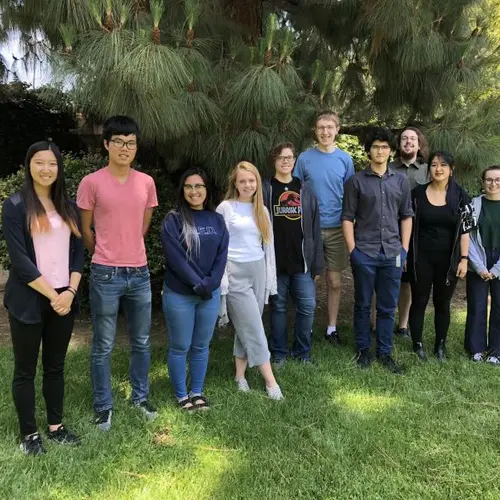
The Carnegie Astrophysics Summer Student Internship Program (CASSI) lasts just 10 weeks. But the experiences garnered by its participants during that short period ripple outward, influencing their professional aspirations and academic choices for years.
This intensive summer internship was created to prepare participants for success at school and in the future—regardless of whether they choose to pursue careers in academia or elsewhere after graduation.
Program Director Gwen Rudie, also a Staff Scientist at the Carnegie Observatories, designed the CASSI experience to impart skills that are imperative for success, especially those such as oral presentation abilities and scientific writing, which aren’t typically taught in a classroom.

Alumni from a variety of academic backgrounds credit their CASSI experience with shaping their ambitions and contributing to their successes.
East Los Angeles College physics major Jandrie Rodriguez emphasized that her participation in the 2021 Observatories’ summer student program taught her what to look for in a university environment when she’s ready to transfer. This includes a commitment to diversity, equity, and inclusion and an understanding of the importance of setting boundaries, even as you work hard, she said.
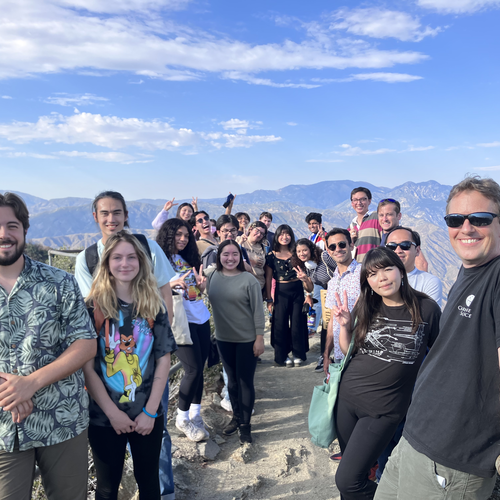
“I don’t have an academic advisor, so I had that experience for the first time at CASSI,” she explained, noting that her mentor, former Carnegie postdoc Alexander Ji included her in all of his group meetings and built a working relationship with her based on mutual trust and respect. “It wasn’t just ‘do this for me’ to get a letter of recommendation.”
Two-time CASSI intern Beryl Hovis-Afflerbach said their work with Carnegie postdoc Ylva Götberg introduced them to computational research and the ways that it can inform and be tested by observations. They also appreciated the chance to attend a professional conference—the American Astronomical Society’s annual meeting—and share their work.

“You really feel like you are part of the field as a whole,” they said. “It made it feel very purposeful to talk to other people whom I haven’t met before about the research I’ve been doing.”
Sal Fu, a Berkeley graduate student studying galaxy evolution on the smallest-known scales, was clear that her multi-year CASSI experience taught her that she enjoyed research enough to pursue an academic career beyond her undergraduate years. She added that her work at Carnegie with Observatories Staff Scientist Josh Simon influenced the subfield of astrophysics in which she chose to focus her graduate research and that she enjoys that her work still frequently brings her into contact with people from the Observatories.
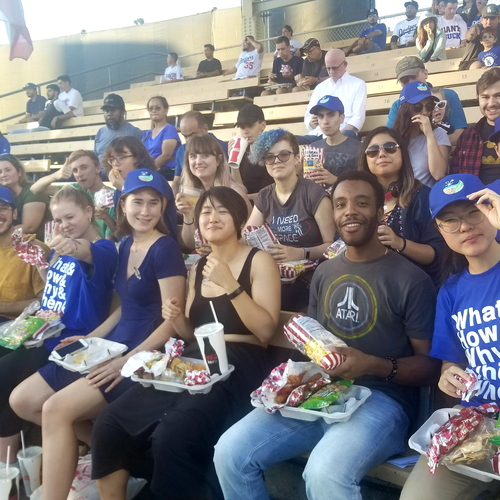
“CASSI enabled me to envision myself as part of a community,” Fu said. “Having an open-door policy meant I could just pop in and ask anybody questions. And now I still keep in touch with these people in various ways.”
2019 summer student Emmanuel Durodola, now a graduate student in astrophysics at Dartmouth University, also credited his mentor, Johanna Teske—then a Carnegie Observatories postdoc, now a Staff Scientist at Carnegie’s Earth and Planet’s Laboratory—with helping him realize that he could pursue an advanced degree.
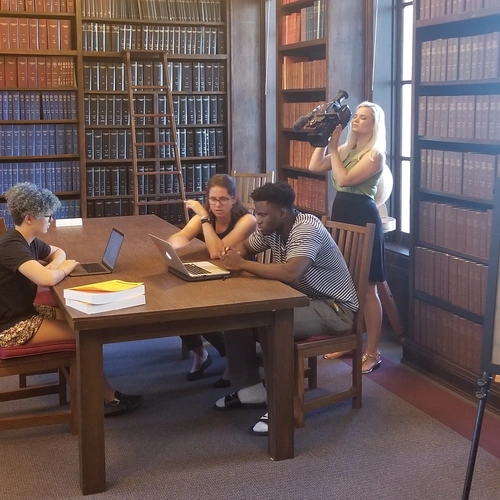
“It was the first time I could talk to a professional in the field about their day-to-day experiences and figure out what was of the greatest interest to me,” he said.
Durodola particularly appreciated the sense of collegiality among scientists of all career stages at the Observatories, including the internship participants.
Carnegie is really a unique place in that way,” he added. “This culture was a huge factor in my decision to apply to graduate school, especially the encouragement of Johanna and Gwen.”
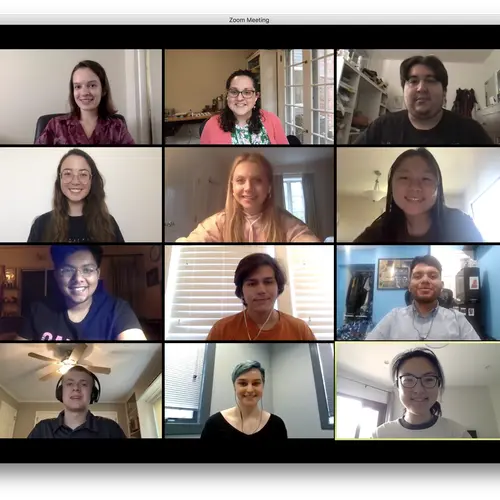
“Carnegie is really a unique place in that way,” he added. “This culture was a huge factor in my decision to apply to graduate school, especially the encouragement of Johanna and Gwen.”
Fu had similar praise for Rudie’s leadership of the program and accessibility to interns long after the summer’s programming concluded.
“She’s just been such an amazing champion for me in all the ways that I really needed,” Fu said. “Her commitment is real and genuine and has played out in really important ways for me.”
Science at the Movies!
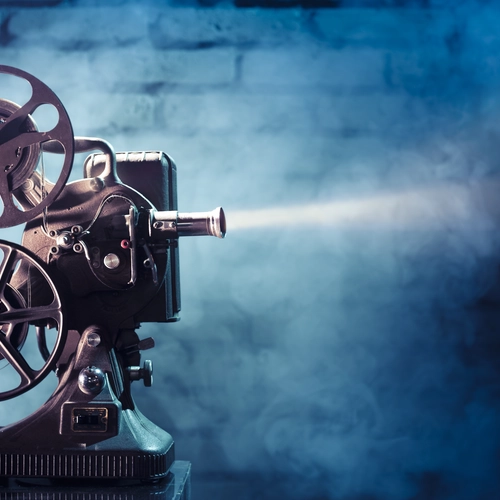
We live in a society that, despite its everyday reliance on technological advancements, is highly skeptical about science. Early career scientists working in the Department of Plant Biology Elena Lazarus, Justin Krupp, Yunru Peng, and Sebastian Toro Arana recognized the necessity of developing science communication skills that can engage the public about the impacts of plant research on their daily lives—including agriculture, nutrition, and medicine. To hone these skills, the young plant scientists initiated a new outreach program, Science and Society on the Screen, which was designed to engage our wider community with discussions about science-related documentaries.
With a goal of opening a dialog about science and building trust, particularly with artists, creators, and members of groups that are historically underrepresented in STEM fields, as well as of correcting common stereotypes about professional scientists, the team launched the series in the summer of 2021 with a virtual screening of the award-winning documentary Biggest Little Farm. The movie chronicles one couple’s eight-year quest to leave the city behind and rejuvenate barren farmland.
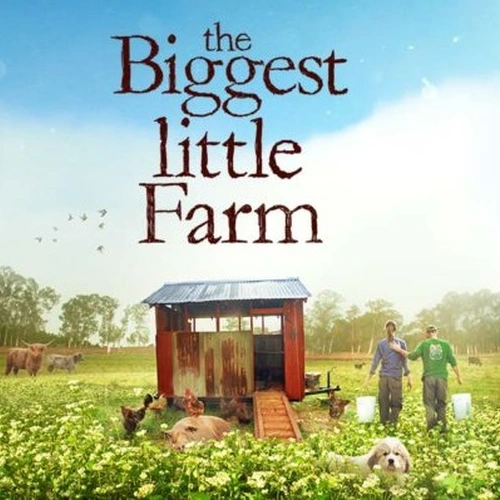
The opportunity to watch the film was followed by a discussion about agriculture that also included the documentary’s director. Based on extensive reading and research about science communication success stories and pitfalls, the project group felt that it was important to design a well-rounded event that acknowledges the complexity of expertise that touches on issues such as farming, including policy, economics, and business, as well as science.
Not only did the initiative provide educational content to the public, it also offered professional development opportunities to the organizers. They undertook many additional responsibilities to bring their idea to fruition, including grant writing for financial support of the series, relationship building through the creation of a partnership with the California Film Institute, and gaining marketing experience to advertise the program.
Looking forward, the team plans to arrange for more screenings in the coming year.